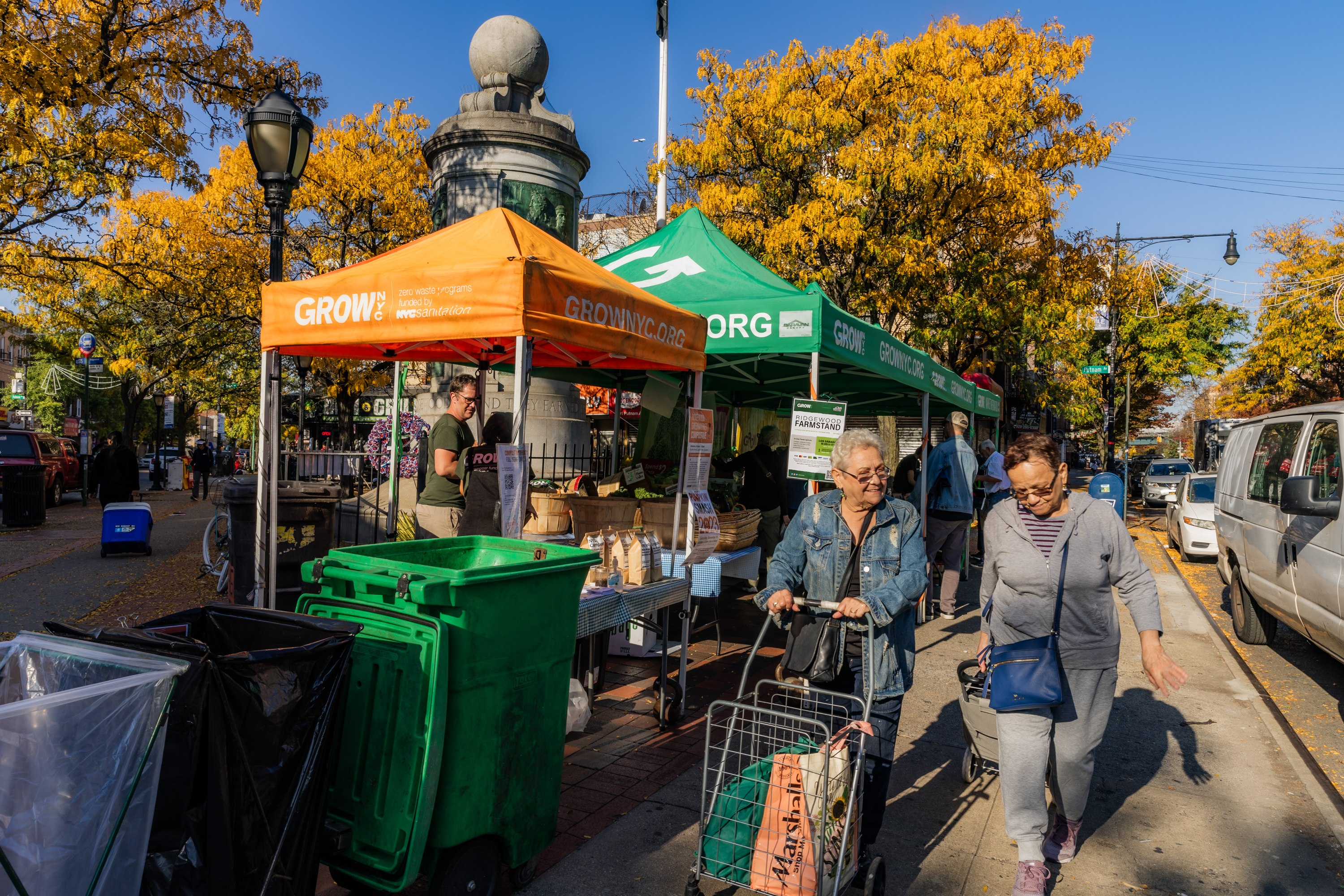1101 & 1105 Bergen Street
Crown Heights, Brooklyn
Founded in 1980
1100 Bergen Street Community Garden is a vibrant community garden in Crown Heights that has functioned as a neighborhood hub since 1980. The garden features raised beds, a large gazebo, colorful and diverse ornamental plantings, and flexible open space and seating for events and gatherings. The garden was also one of the first in the city to feature a GrowNYC-built rainwater harvesting system - a 9-barrel system was originally built to collect water from an adjacent 800 square foot roof. The 9-barrels have since been replaced with a large 1,000 gallon tank whose overflow feeds into a rain garden.
Originally built on a combination of City-owned and private land, 1100 Bergen Street Community Garden was purchased by the Trust for Public Land, transferred to the garden group in 1989, and placed into the Brooklyn Queens Land Trust in 2015, ensuring that the garden will exist in perpetuity.
Garden photos:
This garden is under the jurisdiction of NYC Parks and supported by GreenThumb, the nation's largest urban gardening program. If you are interested in joining, starting, or supporting a community garden, contact NYC Parks GreenThumb.






















